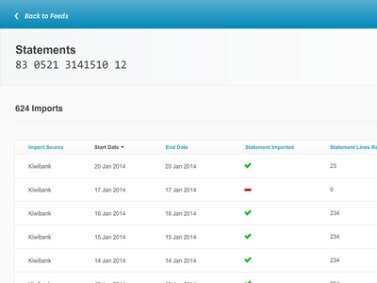
Simply put, accountants and bookkeepers do not do the same things for a business. Accountants are in charge of recording financial information as well as analyzing, reporting, and preparing tax documents. Bookkeepers, on the other hand, are responsible for the organization’s various accounts.
If you’re hiring an in-house bookkeeper, your costs include their salary and benefits. You can save money by going with an online bookkeeper or a third-party bookkeeper. Online bookkeepers usually charge a monthly rate, while third-party bookkeepers usually charge an hourly rate. That means a third-party bookkeeper will likely charge you more than an online one, but that’s because they likely offer more services and resources. Giving everything to your accountant to handle shortly before taxes are due isn’t an effective use of anyone’s time. Without a system in place to monitor your books, an accountant will need ample time to organize everything, and potentially charge a hefty fee along the way.
How would you notice and handle ledger errors? What would your process be?
Bookkeepers can help you keep your finger on the pulse of your business by helping you decrease operating expenses and optimize cash flow, as well as identifying trends and problems. Charlette Beasley is a writer and editor at Fit Small Business focusing on payroll. Her experience ranges among small, mid-sized, and large businesses in industries like banking and marketing to manufacturing and nonprofit.
As your bookkeeper will need to document your business transactions, the candidate you choose will be critical in helping your organization monitor its finances. This includes tasks such as invoicing, paying bills, and preparing bank reconciliations and management reports. They may also be required to assist with the preparation of annual accounts and tax returns. It’s up to you to consider and gauge your time, financial resources, as well as capacity and willingness to learn bookkeeping, in order to answer the make-or-buy decision for your books. Like any small business choice, this might require a bit of trial and error—but you’ll eventually find the solution that works best for you.
Make Money
They monitor the company’s different transactions and create multiple financial statements and reports. After the statements are created, you can review the reports with your financial advisor to better understand the financial health of your business. If you have your accountant also handling the bookkeeping, you are unknowingly preventing them from focusing on their actual duties. There are many reasons why you should consider hiring a bookkeeper. For one, you’ll gain easy access to your company’s financial information, which may allow you to make better decisions with your budget.
However, this can vary depending on their experience and the specific industry they work in. For example, those who work in the finance or accounting industry may earn higher hourly wages than those who work in other industries. Those who have more experience or possess specialized skills may also command higher hourly rates. Then we built Wave Advisors to lend you a hand if you’re looking for one-on-one coaching for your bookkeeping.
Read on to learn how to hire a bookkeeper, tips and questions to ask, and the benefits of handing over the work to the pros. There’s no space for mistakes in this line of work, so bookkeepers are also tasked to double-check records to ensure that the records match. A bookkeeper can be someone who does more than just keep track of numbers for you. They can walk you through certain processes and explain why those processes are important so you don’t feel left in the dark when it comes to your accounting. They can cost more than doing your own bookkeeping, and they might not always be necessary.
If these critical processes are not handled with care, a company will soon find itself in financial hot water. As you shop around, try to find out whether the remote service you’re considering is able to work with accountants. With the growing popularity of cloud-based services, many firms work remotely with clients.
In fact a good bookkeeper is your partner in keeping things running smoothly within your business. They can take away the day-to-day recording of receipts, invoices and other transactions. Aside from saving money, a small business owner can definitely gain some value by preparing their own books and managing their own balance sheets. In many cases, the situation of a business owner who’s just starting out may be simple enough for them to perform their own bookkeeping. On top of that, the volume of transactions each month might be minimal enough that bookkeeping might not even be a time-consuming task. Here are some of the key things to keep in mind when deciding to tackle your books yourself or to hire a bookkeeper.
Proper bookkeeping services require a lot of time and dedication, and if not done correctly, may create roadblocks for your business. Hiring a bookkeeper will allow you to focus on the other important aspects of your business and give you peace of mind knowing that it is being done correctly. These are the employees responsible for recording financial transactions, reconciliation and compiling reports as requested. In many cases, they will also handle payroll, accounts receivable and accounts payable.
Also, members sometimes carry professional indemnity insurance through these groups, which offers added peace of mind for you. If bookkeeping is not handled effectively, receipts and paperwork will pile up. Hiring a local bookkeeping firm is usually a matter of Googling to find which firms are in your area, and then doing your homework to see which ones are the best fit for your business. You can usually ask for references of customers similar to you, so you can get an honest picture of what it’s like working with that firm. There are lots of places online to find a quality freelance bookkeeper, but Upwork.com is a good place to start.

Having a CPA is important but usually far more expensive than a bookkeeper. Bookkeepers are more involved in the day to day, keeping the records you’ll need to give to your CPA at tax time. They are also able to produce forms your business will need throughout the year and for important milestones—like getting financing.
If you find a candidate who checks all the boxes for skills and expertise yet has a non-cooperative attitude, it is best to walk away from them. Similarly, some bookkeepers may use channels like slack or direct messages that are incongruent to your practices. Find a bookkeeper who can fit well into your operations and communicate effectively and professionally.
When should you hire a bookkeeper?
Post your job description to start attracting freelance bookkeepers to your organization. Whereas a bookkeeper manages basic financial tasks, an accountant is more suitable for a higher level of financial analysis, such as financial forecasts, auditing, and tax preparation. Accountants are more likely to give business owners financial advice and insights. Hiring a freelance bookkeeper is that they can help you save money on overhead costs.
- Some sectors may require different records or requirements than others, so you should look for a bookkeeper with a great amount of knowledge on your industry.
- Lastly, the bookkeeper you get from QuickBooks helps you categorize transactions so that you’re all set for the tax season.
- Listen for detailed answers from your bookkeeper candidates about how they spot errors and whether they use any particular process.
- Or you may be thinking about selling your business down the line, and know you need immaculate books to do so.
You can also use a website that’s specifically for hiring freelancers. Expand your search to additional job board sites if you want to hire an employee for the role. You want to make sure you get your job posting in front of as many qualified applicants as possible. Finally, it’s essential to consider the cost of bookkeeping services and the value they bring to your business. Look for a bookkeeper who offers transparent pricing, clearly outlines the services they provide, and offers competitive rates. You should also consider the value that a bookkeeper can add to your business, such as helping you save time, reduce stress, and make better financial decisions.
Which soft skills tests could I use to hire a bookkeeper?
Bookkeepers can help you with tax preparation throughout the year, so your business will be ready for tax season. Besides helping you with your business’s current taxes, bookkeepers can also help you with any retroactive bookkeeping your company might need. Also, some remote bookkeeping services are able to automatically import your financial information—transactions from bank and credit accounts, for instance. Remote bookkeeping services typically charge a flat monthly fee, based on how much time it will take to complete your books every month. The number of accounts you’ll be tracking—and the frequency of transactions—may affect this. An online bookkeeping solution uses cloud-based software to connect you with a team of bookkeepers, who do your books for you (like Bench).
While bookkeeping is more than just copying numbers into a spreadsheet, it is a basic finance position, so you don’t need to look for someone with decades of experience. The annual salary of a full-time bookkeeper, according to the Bureau of Labor Statistics (BLS), averaged about $45,000 in 2021. According to BLS data, bookkeeper salaries range from as low as about $29,000 to over $60,000. Although these are fairly wide ranges, they can be narrowed down based on your industry, the experience of the bookkeeper, the nuances of your business, and your company location.
Not only should your candidates be able to manage accounts payable, but they should also be able to maintain records via accounts receivable as well. The accounts receivable test will give you the information you need on your bookkeeper candidates’ accounts receivable knowledge. We have included Flexjobs for sourcing freelance bookkeepers because this platform also has a specific section for sourcing freelancers. In fact, as well as part-time or flexible job posts, this job board only accepts freelance contracts.
Do you know how to properly document and categorize each and every transaction to maximize your tax deductions and optimize cash flow? Are you incurring late fees or interest because you can’t stay on top of all the finances each day? Every month, your bookkeeper prepares a balance Journal Entry sheet and an income statement, and—depending on what style of accounting you use—a cash flow statement. These financial statements give you the essential info you need to run your business and file taxes. Bookkeepers are the backbone of a company’s accounting department.
You can outsource your bookkeeping duties to a company that will set up and train a dedicated team for you and covers all of the expenses needed for their work. These resources include computers with accounting software, VoIPs for billing reminders, and the office space where they will work. They are responsible for consolidating accounts’ books, following up on past-due payments and billing reminders, processing payments for suppliers, and even processing payroll. For basic financial tasks, it’s usually better to use a bookkeeper than an accountant, since the former charges a cheaper hourly rate.
